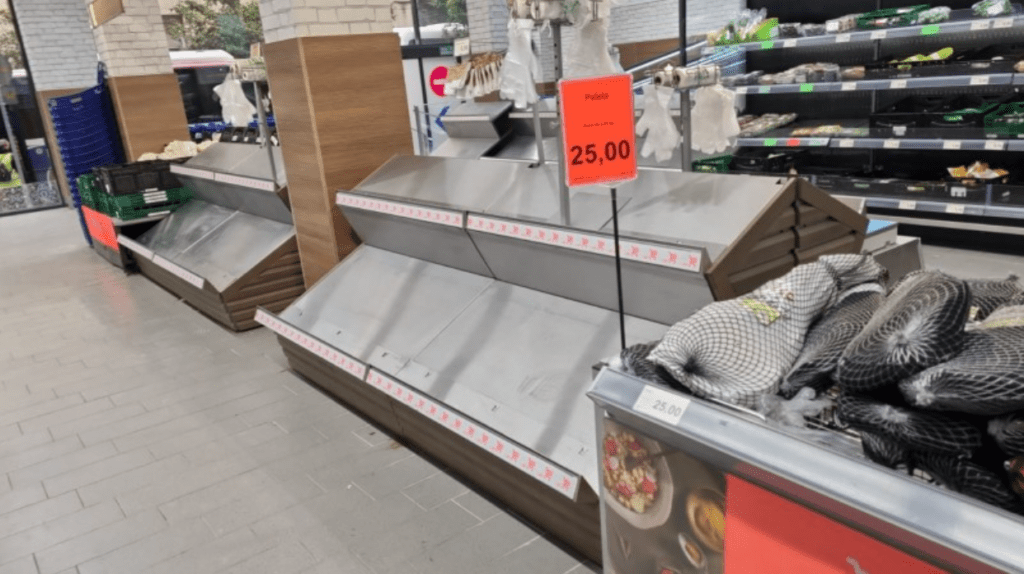For the past three weeks, Spanish truck drivers across the country have protested high gas prices and “totally precarious” working conditions. The “Plataforma Nacional por la Defensa del Transporte” (National Platform for the Defense of Transport) initiated the strike on March 14. Spain’s main transport trade unions did not participate in, nor support this.
As a result of the Russia-Ukraine war, petrol and diesel prices have risen worldwide, making it increasingly more expensive for truckers to fuel their vehicles. In response to this, Spanish truckers began obstructing main roads and intersections with their trucks, driving slowly in convoys, gathering in masses to protest, and even burning tires at the Portugal-Spain border.
The road obstructions caused serious traffic jams in Madrid, Valencia, Andalusia, Galicia, and other regions in Spain. The strike has also intensely impacted national supply chains, with grocery stores around the country experiencing shortages of various products. Dairy supply has been especially affected, as a lack of willing transporters has left thousands of liters of milk products to expire. Despite shelves being empty, Spanish Minister of Agriculture, Fisheries, and Food, Luis Planas, stated that “food supply is guaranteed” for consumers.

Photo by Tania Blanco of Spanish News Today.
Small businesses have been hit hard by the effects of the truckers’ strike. Two business associations, CEOE and CEPYME, stated that the strike was a “violent and anti-democratic” act that caused “serious harm to the supply chain in industry, business, and the food sector”.
On March 24, Spanish Transport Minister Raquel Sanchez met with major transport union “Comité Nacional de Transporte por Carretera” (National Committee on Transport by Highway) to negotiate an end to the strike. The negotiations lasted 12 hours, during which Sanchez proposed a one billion Euro support package to subsidize fuel for truckers. The following day, the offer was accepted by Comité Nacional de Transporte por Carretera, but rejected by the Plataforma Nacional por la Defensa del Transporte. The small, unofficial union announced they would continue striking indefinitely. In response to what they viewed as failed negotiations, the group also blocked Paseo de La Castellana, a major street in Madrid.
Despite the union’s rejection of the proposal, there were signs that the Spanish government was still considering negotiations with the Plataforma Nacional por la Defensa del Transporte. On Spanish radio show “Más de Uno” (More than One), Sanchez stated that she was “not rul[ing] out receiving the convening platform”.
As of now, the situation appears to have calmed significantly. Multiple Spanish transport associations described hauling and food transportation as operating under “practical normality”. The Confederation of Freight Transport (CETM) echoed this observation, noting that there are “many more trucks driving” compared to the early days of the strike.
Featured image by: Reuters.







